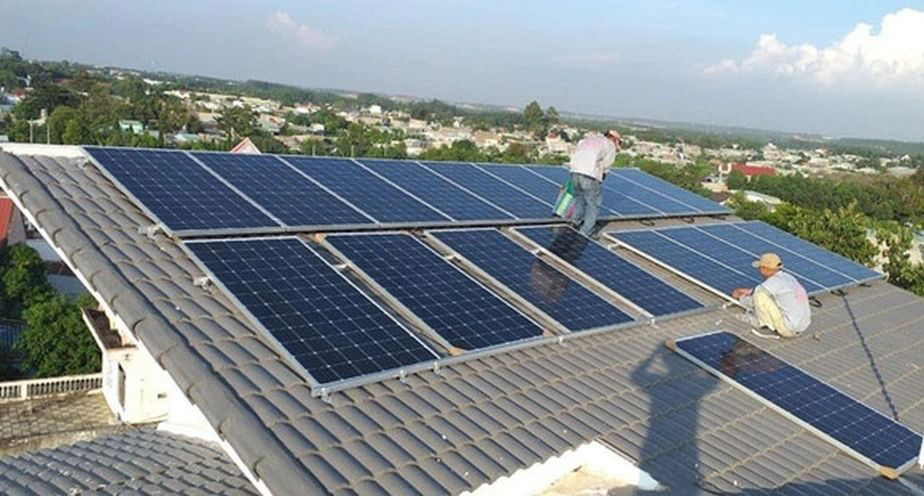This decree stipulates the mechanism and policies to encourage the development of self-produced and self-consumed solar power installed on the roofs of construction works including houses, public buildings, industrial parks, industrial clusters, export processing zones, high-tech zones, economic zones, production establishments, and business establishments which have been invested in and built in accordance with the provisions of law.
The direct power trading between organizations and individuals is carried out in accordance with the decree on the mechanism for direct power trading between renewable energy power generation units and large customers.
Thus, the Decree has an expanded scope of application for all subjects such as houses, public buildings, industrial parks, industrial clusters, export processing zones, high-tech zones, economic zones, production establishments, and business establishments invested in and built nationwide.

Rooftop solar power, if not fully used, shall be allowed to sell up to 20% of the installed capacity to the national grid
Policy on encouraging the development of self-produced and self-consumed RSP
One of the notable contents of Decree No.135/2024/ND-CP is the policy to encourage the development of self-produced and self-consumed RSP. Specifically, the decree stipulates 9 incentive policies:
1. Organizations and individuals installing self-produced and self-consumed RSP are exempted from electricity operation licenses and have no limit on installed capacity in the following cases:
a) Not connected to the national power system;
b) Installing an anti-backflow device system into the national power system;
c) Households and individual houses developing self-produced and self-consumed RSP with a capacity of below 100kW.
2. Organizations and individuals installing self-produced and self-consumed RSP with an installed capacity of 1,000kW and above and selling surplus electricity to the national power system are to carry out procedures on power planning and request a power operation license according to the provisions of law.
3. Self-produced and self-consumed RSP shall be entitled to enjoy preferential tax policies according to the provisions of current tax law.
4. Self-produced and self-consumed RSP has simplified administrative procedures according to the provisions of current specialized laws.
5. Construction works with self-produced and self-consumed RSP installed do not have to adjust or supplement energy land and functions according to the provisions of law.
6. Self-produced and self-consumed RSP of households, individual houses, public buildings, and workspaces are identified as public assets and technological equipment attached to construction works.
7. Self-produced and self-consumed RSP connected to the national power system within the capacity scale according to the planning and implementation plan, and self-produced and self-consumed RSP connected to the national power system of households and individual houses with a capacity of less than 100kW, if not fully used, shall be allowed to sell up to 20 percent of the installed capacity to the national grid as follows:
a) Vietnam Electricity shall pay organizations and individuals for the surplus electricity output generated to the national power system, but not exceeding 20% of the actual installed capacity;
b) The trading price of surplus electricity to the national power system is equal to the average market electricity price in the previous year announced by the power system and electricity market operator to ensure appropriate incentives in each development period of the national power system.
c) Self-produced and self-consumed RSP installed on public buildings or construction sites’ roofs is identified as a public asset and does not trade surplus electricity.
8. Households and individual houses that develop RSP for self-production and self-consumption are exempted from or do not have to adjust their business licenses.
9. Encourage organizations and individuals to decide to install a battery storage system (BESS) to ensure the safe and stable operation of the power system.
The Decree takes effect from today (October 22, 10).
Translator: Thu Hường
Share